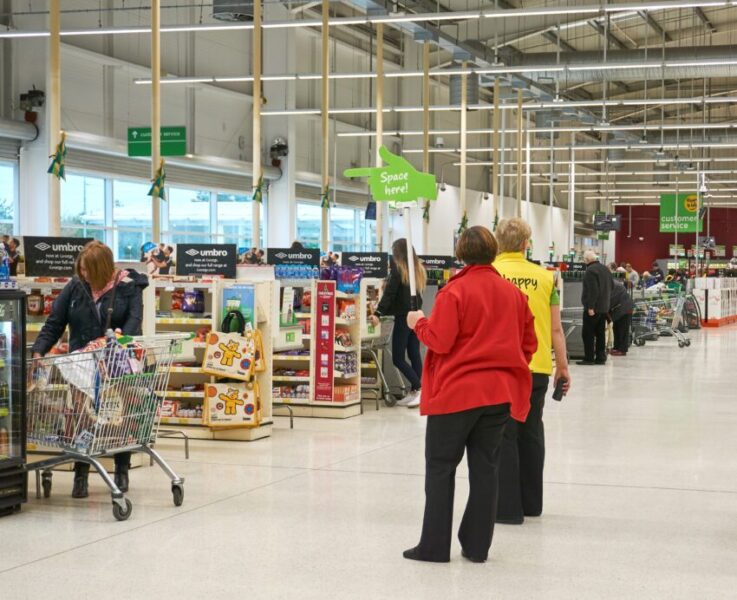Business
Asda wants to increase staff presence at checkouts, reducing its reliance on self-service checkouts

Asda has announced plans to increase the number of staff at staffed checkouts in its stores, admitting it has reached its limit with self-service checkouts.
While the supermarket giant insists that self-checkouts work well for many customers, the company has decided to invest extra hours into offering more human-operated checkouts.
Asda Chief Financial Officer Michael Gleeson noted that the retailer has found the right balance between self-service options and traditional checkouts. “I think we’ve reached a level of self-checkouts and scan and go where we think it works best for our customers, and we feel like we’ve got the balance about right,” Gleeson said. He clarified that this move is not about adding more cash registers, but rather increasing the number of employees available to assist customers at existing staffed checkouts.
The shift comes amid a wider industry trend that has seen some retailers, such as northern supermarket chain Booths, eliminate the majority of their self-service checkouts, citing a preference for the personal touch staff can provide. Booths stated that “colleagues who serve customers deliver a better customer experience.”
Asda’s decision also reflects feedback from customers who have experienced problems with self-service checkouts. Pennie Orger, registered blind, shared her experience: “I am severely visually impaired – registered blind – so self-service checkouts are a no-starter. My guide dog is smart, but not that smart.” Similarly, deaf shoppers have reported problems with self-service checkouts, which rely on verbal instructions.
Asda stressed that the increase in staffed checkouts is not related to concerns about shoplifting, despite a recent rise in thefts in England and Wales. Last year, shoplifting hit its highest level in two decades, with 430,000 incidents recorded by police.
The origins of self-service cash registers date back to the invention of the automated teller machine (ATM) in 1967, with the first self-service cash registers introduced in the 1980s by David Humble. These checkouts became increasingly popular in the 1990s and by 2021 there were 325,000 self-service checkouts in stores worldwide, including around 80,000 in UK supermarkets alone.
As Asda rolls out this change for the rest of the year, customers can expect to see more staff available at checkouts, improving the in-store shopping experience and providing more support to those who prefer or need human assistance.













